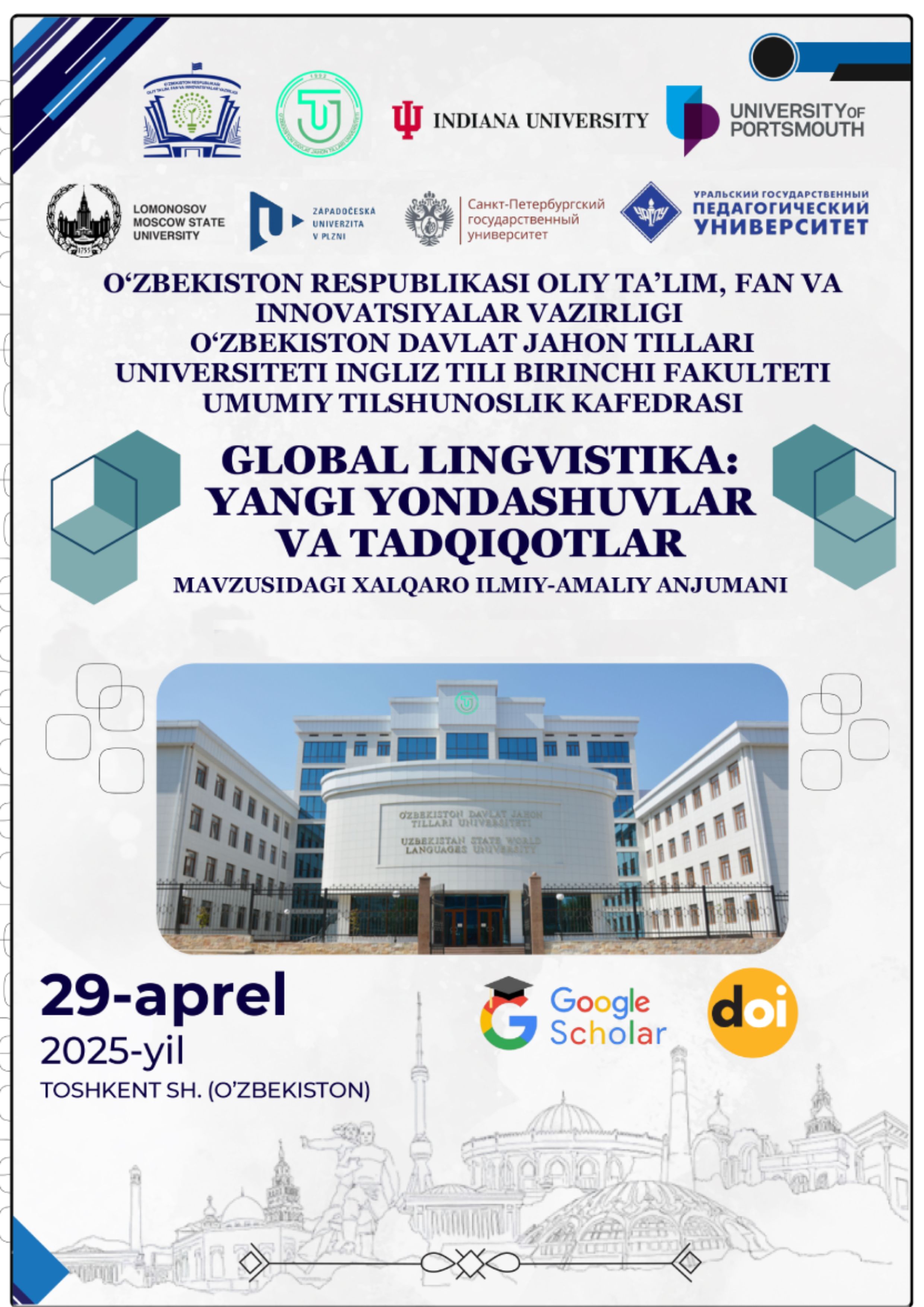LEXICAL TRANSLATION TRANSFORMATIONS IN WRITTEN TRANSLATION: APPLICATION AND ANALYSIS IN LEGAL TEXTS
https://doi.org/10.5281/zenodo.15454948
Kalit so‘zlar
Legal translation, written translation, lexical transformations, legal terminology, legal equivalence, terminological gaps, transliteration, calque, borrowing, substitution, cross-cultural communication.Annotasiya
Written legal translation demands both linguistic expertise and a comprehensive understanding of legal systems, cultural contexts, and specialized terminologies to ensure precise conceptual transfer. Lexical transformations, which involve systematic modifications at the word or phrase level, play a crucial role in adapting legal content to the linguistic and normative standards of the target language while preserving legal equivalence and interpretative consistency. This article examines the application of such transformations in written legal translation, drawing on examples from treaties and resolutions. It further explores strategies such as transliteration, calque, borrowing, and substitution, emphasizing their significance in enhancing clarity, accuracy, and functional adequacy to facilitate cross-cultural legal communication.
Foydalanilgan adabiyotlar ro‘yhati
Alcaraz E., Hughes B. (2002). Legal Translation Explained. St. Jerome Publishing.
Baker M. (1992). In Other Words: A Coursebook on Translation. Routledge.
McCarthy D., Navigli R. (2007). Contextual Synonym Expansion for Lexical Substitution. Proceedings of the ACL Workshop on Contextual Information in Natural Language Processing.
Šarčević S. (1997). New Approach to Legal Translation. Kluwer Law International.
US Immigration and Nationality Act – 1952.
O‘zbekiston Respublikasining Tojikiston Respublikasidagi elchixonasining binolari kompleksini qurish va jihozlash bo‘yicha tashkiliy chora-tadbirlar to‘g‘risida VMQ – 2019.

